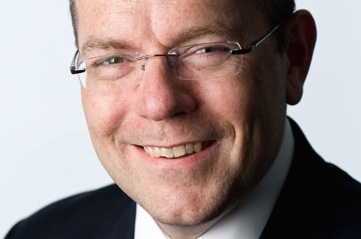The Financial Conduct Authority is to consult on imposing a 1% cap on early exit charges for consumers using the pension freedoms.
The regulator has proposed that for existing contract-based personal pensions, including workplace personal pensions, exit charges will be capped at 1% of the value of a member’s pot. The FCA says firms will not be able to apply any exit charge for personal pension contracts entered into after the proposed new rules come into force.
Christopher Woolard, director of strategy and competition at the FCA said: “Together with the ban on exit fees in future contracts, we are proposing a 1% cap on exit charges in existing contracts to ensure people can access their pension pots without being deterred by charges. This is an important step so people feel able to access their pension savings should they wish to.” Some experts had forecast the cap would be much higher.
The FCA will be given both the “power and duty” to cap exit fees by Parliament once the relevant section in the Bank of England and Financial Services Act 2016 comes into force. This aims to ensure that consumers can access the government’s pension reforms easily and affordably, says the FCA.
Separately, the Department for Work and Pensions is publishing a document on, “Capping early exit charges for members of occupational pension schemes.” It will consult on the document for 12 weeks.
Hargreaves Lansdown says the charge would apply to personal, stakeholder and self-invested personal pensions, but not occupational pensions.
The cap of 1% will apply to existing contracts where an exit penalty is applied, but only to those aged 55 or over.
Tom McPhail, head of retirement policy, Hargreaves Lansdown; “Exit penalties on out-dated pension contracts have absolutely no place in the modern pension savings system. Capping these fees will provide significantly better choices for investors wishing to use the pension freedoms.
“However, this cap does not go far enough. The fee should be capped at 0% and this would benefit a further 150,000 investors. A 1% cap is something of a victory for corporate vested interests. We hope that the cap can be brought up to a zero tolerance of exit barriers in due course.”
Claire Trott, head of pensions technical at Talbot and Muir and a columnist for Financial Planning Today sister website Sipps Professional, said: "The cap on early exit penalties should really be welcomed as high exit penalties will be a barrier to accessing pension freedoms. It is unlikely to impact on SIPPs which are included in this, but their charging structures are usually set up in such a way that the timing of transfer or crystallisation doesn’t impact on the fees. This is why explicit fees that are determined by work required to facilitate the transaction should be the norm rather than percentage charges that bear no relation to the actual work required.
"I feel that it is a shame that this hasn’t been extended to transfers for those under the age of 55 because there may be investors trapped in products that don’t offer the full death benefit options, that would like to transfer, but are being held hostage by early exit penalties. This could mean a significant lack of options available to their beneficiaries on their death, meaning they could incur additional costs because they are forced to take the fund as a lump sum, bringing it into their estate on second death.”
Jon Gwinnett, product technical manager at Nucleus said: “We absolutely welcome this proposed rule by the FCA. It is clearly a fantastic thing as no-one should be penalised for wanting to move their money, things should be as open and accessible as possible for consumers.”

